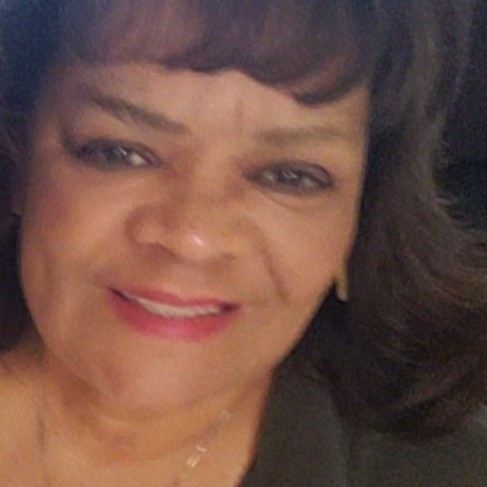
The book-shaped 'Knowledge' bath bomb from Lush.
Building on its long record of corporate activism, the beauty brand Lush has taken on another social impact cause within its series of ethical campaigns – this time focused on school curricula.
Standing up for teaching everyone’s history in public schools
Last month, Lush launched a campaign in cooperation with The Zinn Education Project and the I Dream Library, called Teach Truth. Carleen Pickard, Lush’s ethical campaigns specialist, told TriplePundit that the Teach Truth Campaign evolved from a moment of racial crisis stemming from the death of George Floyd in May 2020.
“In an effort to uncover unconscious biases, Lush leadership sought ways to confront racism from an educational standpoint, such as teaching the full, unabridged versions of Black history, from the perspective of the poor, BIPOC and traditionally disenfranchised.” Pickard said.
In the course of building this campaign, several events from history related to racial tension were framed from the true perspective of their impact: the effects of the prejudicial treatment of Muslims after 9/11; the internment of Japanese Americans after the bombing of Pearl Harbor; early interactions with pilgrim explorers in America that proved detrimental to Native Americans; the isolation of people during the HIV/AIDS epidemic; and past and modern homophobia and transgender bias. All of these historical moments are deserving of frank discussion, the goal being to understand history well enough not to repeat history.
Delivering on that commitment
The Teach Truth campaign included a specific product launch called the Knowledge Bath Bomb (pictured above), a lightly scented fizzer of vanilla and lyang lyang. All product proceeds go toward local programs that connect educators and students to resources that teach a more truthful history, such as the I Dream Library. Preliminary figures indicate the Knowledge Bath Bomb and Teach Truth Campaign generated $250,000 in funding over the two-week period after it launched in February.
At last count, Lush employs 3,209 persons in North America, with 1,622 employees located in the U.S. dispersed primarily in its 220 U.S. stores.
“Our company’s values and the Ethical Campaigns we support are part of an employee’s onboarding process,” Pickard told us. It isn’t necessary that employees agree with everything, she added, but it is part of the learning process and employee participation in the company’s ethical campaigns program is encouraged.
“We groom our employees to be volunteers, not expecting everyone to come to it with the same amount of enthusiasm. But over time, it’s rewarding to see the enthusiasm develop, especially in some you wouldn’t think of participating,” Pickard said.
What Lush uses in its approach to corporate social responsibility and environmental, social and governance issues is the constant commitment model of participation. Overarching individual ethical campaigns is the notion that the company itself is about progressive and globally conscientious thinking, backed by action, when it comes to “doing better” for surrounding communities and, indeed, the world.
For Lush, a continued focus on both people and the planet
Other challenges the company has taken on include animal rights as well as those focused on human rights and environmental protection. As part of these efforts, business groups within the company are expected to campaign at least once a year on one of the core values through their shops and website.
Lush’s ethical campaigns program has also included topics such as the climate crisis, immigration, animal cruelty, transgender rights, support for the Black Lives Matter movement, refugees’ rights and protecting marine life. Since 2012, the company’s ethical campaigns program has raised more than $3.5 million.
Many of these programs are funded through special product promotions. Charity Pot, another Lush program dedicated to charitable giving, features a line of hand and body lotions that has generated more than $54 million since the company first launched the products in 2008.
Meanwhile, Lush has continued its commitment to environmental stewardship. For example, the company has invested more than $1.5 million in more biodiverse farming systems in Uganda, Guatemala, Peru and Arizona.
Finally, Lush continues to implement some of the strictest non-animal testing policies in the cosmetics industry and only buys materials from suppliers that do not test with animals. The company says it has been able to identify 20,000 natural ingredients that do not require animal testing and promotes the use of three-dimensional human skin models to take the place of sensitivity testing on rabbits.
Image credit via Lush

Gloria Johns' career has included her work as a columnist for Scripps-Howard, Gannett and Tribune News Service. She writes for the San Angelo Standard Times and the West Texas Angelus. Previously she was a special features reporter for San Angelo LIVE! Gloria also has nearly thirty years of award-winning grant writing experience for federal, state and county funds to support social, medical, educational and arts projects. She has enjoyed a successful career in telecommunications and nonprofit management. "Gloria is a Purdue University graduate. She has also attended Angelo State University for graduate courses and studied Texas Family Law at Sam Houston State University. She lives just on the edge of the Chihuahua desert in west Texas.














